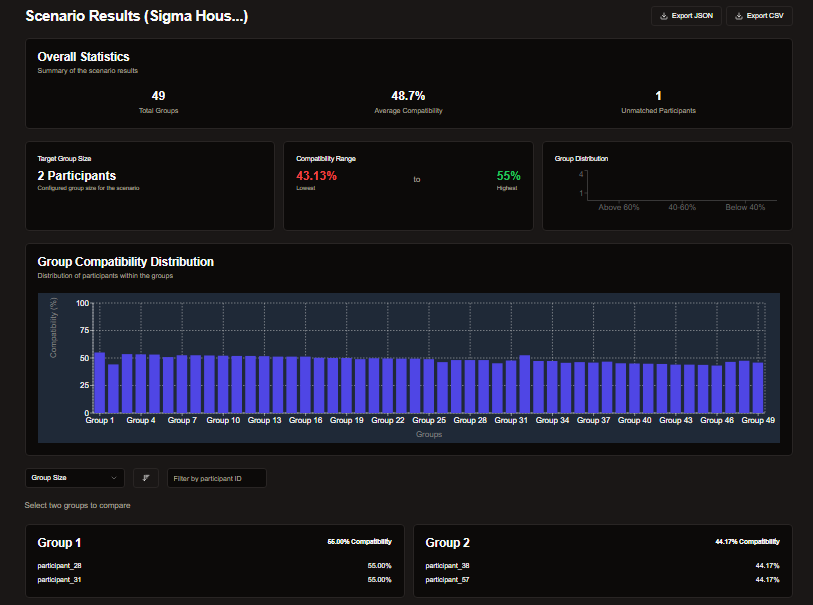Reducing Roommate Conflicts: How Smart Matching Creates Harmonious Dorm Environments

The college experience is significantly shaped by living arrangements. For many institutions, roommate conflicts remain one of the most persistent challenges in residence hall management, leading to stress, academic disruption, and even dropout in extreme cases. As universities face increasing pressure to improve retention rates, addressing the roommate equation has become a strategic priority.
The Hidden Cost of Roommate Incompatibility
Traditional roommate assignment methods—random matching, basic questionnaires, or "potluck" approaches—often fail to account for complex factors that determine successful living partnerships. The consequences extend beyond occasional disagreements:
- Significant residence life staff time devoted to mediating conflicts
- Mid-year room change requests disrupting housing operations
- Decreased academic performance among students in high-conflict living situations
- Lower satisfaction ratings with the overall college experience
Statistics tell a concerning story: up to 25% of students report serious roommate conflicts, and housing compatibility issues rank among the top five reasons students cite for transferring institutions during their first year.

The Science of Compatibility
What makes certain roommate pairings successful while others deteriorate rapidly? Research points to several key factors that transcend basic questions found on traditional housing forms:
- Communication style alignment
- Conflict resolution approaches
- Values regarding shared resources and spaces
- Attitudes toward academic environments
- Social energy and guest preferences
- Cleanliness expectations and habits
AI-powered platforms like Easy Pairing have revolutionized this process by analyzing multidimensional compatibility factors through sophisticated algorithms. Rather than relying on surface-level preferences, these systems identify meaningful patterns that predict harmonious living arrangements.
Transforming Residence Life Through Smart Matching
Housing administrators implementing Easy Pairing's smart matching technology are reporting remarkable outcomes:
- 40-60% reduction in formal roommate mediation requests
- 30% decrease in mid-year room change applications
- 15% improvement in residence hall satisfaction scores
- Significant correlation with first-to-second year retention rates
For residence life staff, this translates to more time focused on community building rather than conflict resolution.
Easy Pairing's approach represents a fundamental shift from traditional housing assignments through:
- Comprehensive assessment of living habits, communication styles, and value systems
- Pattern recognition beyond obvious similarities
- Dynamic weighting of factors proven to have the greatest impact on roommate satisfaction
- Continuous improvement through machine learning capabilities

Implementation Considerations for Housing Administrators
For institutions considering the transition to AI-powered roommate matching, several key implementation factors can maximize success:
- Timing is everything: Implement the matching process early enough to process results but late enough to capture accurate student preferences
- Communication clarity: Set realistic expectations about the matching process and outcomes
- Data integration: Ensure seamless connection with existing housing management systems
- Feedback mechanisms: Create structured opportunities to evaluate match success
The Future of Residence Hall Harmony
As student expectations for personalized collegiate experiences continue to rise, institutions that embrace data-driven approaches to roommate matching gain significant advantages in recruitment, satisfaction, and retention.
Easy Pairing's compatibility algorithms represent the cutting edge of this evolution—transforming what was once considered an inevitable "luck of the draw" aspect of college life into a strategic, science-based approach to community building.
In an era where every retention percentage point matters, addressing the roommate equation is no longer optional—it's an essential component of institutional success. By leveraging the power of compatibility science, colleges and universities can create living environments where students don't just coexist, but truly thrive together.